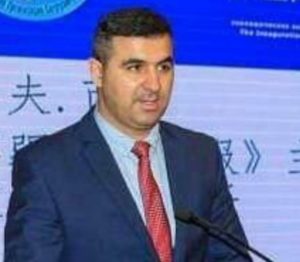By Seymur Mammadov

The official visit of Turkish President Recep Tayyip Erdogan to Pakistan will be another milestone in further strengthening bilateral relations between the two countries in all areas. The two countries have always maintained and continue to maintain fraternal relations and in difficult times stand shoulder to shoulder with each other both in the fight against terrorism and at the international level, especially with regard to Ankara’s principled, unchanging position on the Kashmir issue. At the same time, Pakistan has always supported Turkey’s position on the Cyprus issue.
Today, Turkey and Pakistan pursue an independent foreign policy and bear a heavy burden, which do not want to notice in the West. Both countries have similar experience in conducting a migration policy, have a tolerant policy towards their neighbors, and in Europe the concept of “multiculturalism” has become problematic and causes more and more irritation. From the 1980s to today, Pakistan has accepted up to 3.5 million Afghan refugees, a similar number of Syrian refugees are located in Turkey. To date, Ankara has accepted the largest number of Syrian refugees in the world – 3.6 million. And, what is most surprising, the international community showed indifference to the problems of Turkey and Pakistan, which faced an influx of refugees. Islamabad and Ankara in this regard became the savior of Europe. Just imagine, if Pakistan and Turkey did not accept refugees from neighboring countries, they would all rush to Europe.
With regard to the purpose of the visit of Turkish leader Recep Erdogan to Pakistan, it is important to note that both sides are currently interested in increasing the volume of bilateral trade. I recall that in January of this year, when the Prime Minister of Pakistan, Imran Khan, was on a two-day official visit to Turkey, he said that Turkey and Pakistan should direct their efforts to expand the volume of trade between the two countries. “I brought my team with me (economic means), because now is the time to increase the volume of trade between Pakistan and Turkey,” said Imran Khan. The fact is that the volume of bilateral trade is currently lagging behind the desired level for a number of reasons, including because of the distance between the countries. Over the past 5 years, trade between Pakistan and Turkey has increased from about $ 600 million to $ 800 million. But this is a small figure. Because the potential of the economic sector has not yet been fully realized. In addition, a business forum will be organized during the visit of the Turkish leader to Pakistan, which will bring together about 90 Turkish businessmen. Therefore, the official visit of the Turkish leader to Pakistan can be regarded as the return visit of the Pakistani Prime Minister to Turkey with one important mission of deepening bilateral economic cooperation aimed at increasing trade turnover.
Moreover, the countries signed a strategic economic agreement aimed at expanding cooperation with a special emphasis on trade and investment. Turkey and Pakistan are founding members of the Organization for Economic Co-operation and part of the Islamic G8. Countries worked on the conclusion of an agreement on preferential trade in order to significantly increase trade and investment, especially in the field of transport, telecommunications, manufacturing, tourism and other industries. Over the different periods, Pakistani exports to Turkey have been growing – rice, sesame, leather, textiles, fabrics, sporting goods and medical equipment. Turkey’s exports to Pakistan: wheat, lentils, diesel, chemicals, vehicles, machinery and energy. Moreover, Turkish private corporations have also invested heavily in Pakistan’s industrial and construction projects for the development of highways, pipelines and canals.
However, the following factors can give a big impetus to the further development of bilateral economic ties.
The first factor is the creation of a free trade zone. Pakistan and Turkey should speed up negotiations in this direction, because by lifting tariff restrictions on trade, mutual trade will increase fivefold: from $ 800 million to $ 4.5 billion.
The second factor is Turkey’s accession to special economic zones under construction within the second stage of the China-Pakistan Economic Corridor (CPEC).
The third factor is the attraction of Turkish investment in a number of sectors, including engineering, chemical industry, construction, electrical engineering, mechanical engineering and the defense industry.
Thus, this visit will set the economic institutions of Pakistan and Turkey the task of finding new opportunities to increase bilateral trade, attract new investments in the economy of the two countries. There is no doubt that they will successfully cope with this mission, as the leaders of both countries are determined to further expand trade. In the short term, we will witness a breakthrough in the economic relations of the two countries, which will lead to an inevitable increase in trade volumes.
